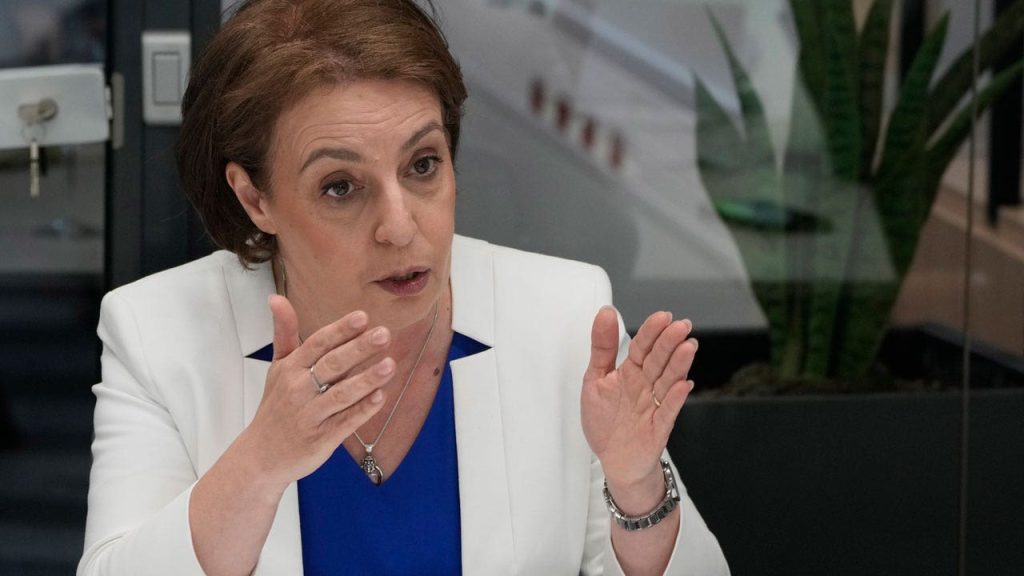Kosovo’s foreign minister, Donika Gërvalla-Schwarz, expressed the belief that Russia must lose the war in Ukraine in order to prevent further conflict in Europe. Despite Ukraine not recognizing Kosovo’s independence, Gërvalla-Schwarz stated that Kosovo understands what Ukraine is going through, as both nations have experienced aggression from Serbia and Russia. Kosovo, having declared independence from Serbia in 2008, has faced similar challenges as Ukraine and stands in unconditional support of the country.
The history of Kosovo includes being the target of war crimes and atrocities by Serbia’s security forces in the 1990s, leading to Kosovo’s quest for independence. Gërvalla-Schwarz emphasized Kosovo’s unwavering support for Ukraine, despite its limited capabilities as a small state. Recent threats from Russia directed towards Kosovo were seen as a reminder of the aggressive intentions of both Serbia and Russia, reinforcing the need for Ukraine to prevail in the conflict against Russia.
As part of efforts to strengthen ties with other countries, Kosovo inaugurated its first consular mission in Poland, marking a step towards enhancing economic and cultural cooperation. Despite not having established diplomatic relations with Poland when Kosovo declared statehood in 2008, the inauguration of the consular mission signifies progress in the relationship between the two nations. Gërvalla-Schwarz expressed hope for the mission to evolve into an embassy in Poland, indicating a commitment to further partnership.
During Gërvalla-Schwarz’s visit to Poland, Chinese President Xi Jinping visited Belgrade, Serbia, pledging to deepen ties between the two countries. This raised concerns about Serbia’s alignment with adversaries of European Western democracies, particularly in the context of Russia’s ongoing conflict with Ukraine. Gërvalla-Schwarz emphasized that Serbia, as a candidate state of the European Union, cannot simultaneously align with Russia while seeking EU membership, highlighting the complex geopolitical dynamics at play.
The conflict between Serbian forces and ethnic Albanian separatists in Kosovo in 1998-99 resulted in significant loss of life, predominantly among ethnic Albanians. A NATO bombing campaign eventually pushed Serbian forces out of Kosovo, paving the way for Kosovo to declare independence in 2008. However, Serbia still does not recognize Kosovo as a separate country, leading to continued tensions between the two neighboring nations. Gërvalla-Schwarz’s statements underscore the ongoing challenges and complexities facing Kosovo in its pursuit of independence and international recognition.
Overall, Kosovo’s strong support for Ukraine and commitment to enhancing relations with countries like Poland demonstrate the nation’s determination to overcome past conflicts and contribute positively to regional stability. The geopolitical implications of developments such as China’s engagement with Serbia and Russia’s actions in Ukraine underscore the need for Kosovo to navigate carefully in a complex international environment. Gërvalla-Schwarz’s advocacy for Ukraine and Kosovo’s efforts to foster partnerships with other nations reflect the broader aim of promoting peace and cooperation in Europe.


